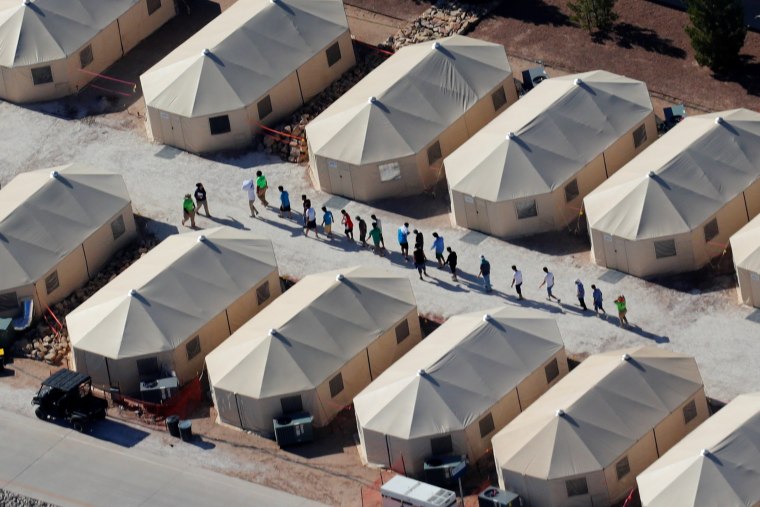It may be tempting to think the Donald Trump's "zero tolerance" policy, which led to the separation of many migrant families, is a tragedy from our recent past. The president and his team implemented a cruel approach; there was a public backlash; the White House scaled back its policy, and a federal court ordered an end to the brutal fiasco.
The problem -- one of them, anyway -- is that the tragedy is ongoing. Last month, the Department of Health and Human Services' inspector general's office reported that the administration separated more children from their parents than we previously knew, and it struggled to determine whether the families had been reunited.
Yesterday, the story took another turn for the worse.
The Trump administration said in a court filing that reuniting thousands of migrant children separated from their parents or guardians at the U.S.-Mexico border may not be "within the realm of the possible."The filing late Friday from Jallyn Sualog, deputy director of the department of Health and Human Services' Office of Refugee Resettlement, was an ordered response in an ACLU lawsuit challenging the government's separation of thousands of children at the border since the summer of 2017.... Sualog said her office doesn't have the resources to track down the children, whose numbers could be thousands more than the official estimate.
In the same filing, the administration said there is no system in place that allows officials to track the children who were separated from their parents. (A central database to track separated families has never existed.)
In case that weren't quite enough, HHS added that removing children from their current homes, in order to reunite them with their parents, "could interfere with the child's routine and currently established relationships."
Or put another way, the Trump administration's latest position is that it might be harmful to the kids we separated from their parents if we returned the kids to their parents.
Looking ahead, judicial scrutiny is likely to remain a problem for the administration, but it shouldn't discount congressional investigations, too. Roll Call reported overnight:
The Homeland Security Department's policy of separating children from their parents at the southern border will be back in the spotlight during a House Judiciary Committee hearing scheduled Feb. 12.Chairman Jerrold Nadler and fellow Democratic Rep. Zoe Lofgren, who chairs the subcommittee on immigration and citizenship, announced a lineup of witnesses Monday in a joint press release. Those scheduled to testify Feb. 12 include the chief of U.S. Customs and Border Protection, and top advisers from the Justice Department, Immigration and Customs Enforcement (ICE), and the Department of Health and Human Services. [...]The announcement comes the same day as House Homeland Security Committee Chairman Bennie Thompson, D-Miss., announced DHS Secretary Kirstjen Nielsen agreed to testify before his committee in March.
Nielsen, of course, was the Trump cabinet official who declared via Twitter in last June, "We do not have a policy of separating families at the border. Period."
It'll be interesting to see if she stands by that assessment while testifying under oath.
